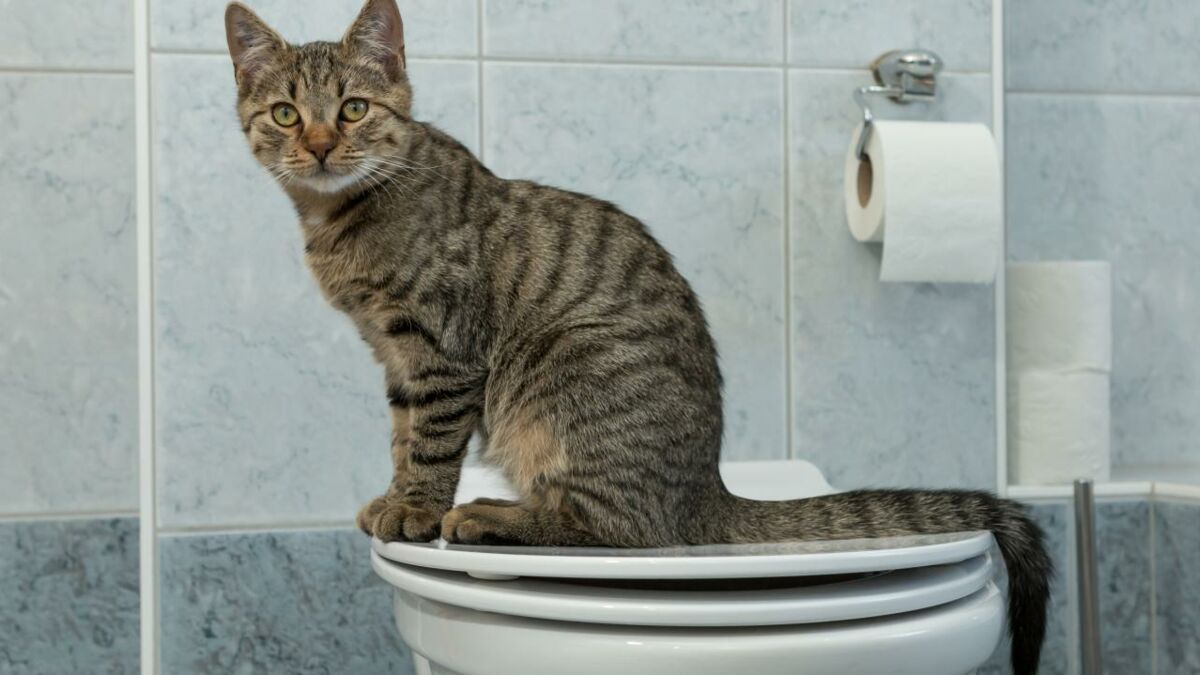Prevent Clogs and Damage: Don't Flush Cat Poop Down Your Toilet - Professional Insights
Prevent Clogs and Damage: Don't Flush Cat Poop Down Your Toilet - Professional Insights
Blog Article
The article following next on the subject of How to Dispose of Cat Poop and Litter Without Plastic Bags is indeed remarkable. Read it yourself and see what you think about it.

Intro
As pet cat owners, it's necessary to bear in mind exactly how we throw away our feline pals' waste. While it may appear practical to purge pet cat poop down the bathroom, this method can have destructive effects for both the setting and human health and wellness.
Ecological Impact
Flushing pet cat poop introduces unsafe virus and parasites into the water system, posing a significant danger to water communities. These contaminants can negatively impact aquatic life and concession water top quality.
Wellness Risks
In addition to environmental concerns, flushing cat waste can additionally posture health and wellness risks to people. Feline feces might have Toxoplasma gondii, a bloodsucker that can cause toxoplasmosis-- a potentially severe illness, particularly for expectant ladies and people with weakened body immune systems.
Alternatives to Flushing
Thankfully, there are much safer and more accountable means to throw away pet cat poop. Consider the following choices:
1. Scoop and Dispose in Trash
One of the most common method of getting rid of pet cat poop is to scoop it right into a naturally degradable bag and toss it in the garbage. Be sure to make use of a devoted litter scoop and throw away the waste immediately.
2. Use Biodegradable Litter
Opt for eco-friendly pet cat trash made from materials such as corn or wheat. These litters are eco-friendly and can be safely gotten rid of in the trash.
3. Bury in the Yard
If you have a yard, think about burying pet cat waste in a designated location far from veggie gardens and water sources. Make sure to dig deep adequate to prevent contamination of groundwater.
4. Set Up a Pet Waste Disposal System
Buy a pet garbage disposal system especially developed for pet cat waste. These systems use enzymes to break down the waste, decreasing odor and environmental impact.
Verdict
Responsible pet possession prolongs beyond giving food and sanctuary-- it likewise entails appropriate waste monitoring. By avoiding flushing cat poop down the toilet and going with alternative disposal techniques, we can decrease our ecological footprint and secure human health.
Why You Should Never Flush Cat Poop Down the Toilet
A rose by any other name might smell as sweet, but not all poop is created equal. Toilets, and our sewage systems, are designed for human excrement, not animal waste. It might seem like it couldn’t hurt to toss cat feces into the loo, but it’s not a good idea to flush cat poop in the toilet.
First and foremost, assuming your cat uses a litter box, any waste is going to have litter on it. And even the smallest amount of litter can wreak havoc on plumbing.
Over time, small amounts build up, filling up your septic system. Most litter sold today is clumping; it is made from a type of clay that hardens when it gets wet. Ever tried to scrape old clumps from the bottom of a litter box? You know just how cement-hard it can get!
Now imagine just a small clump of that stuck in your pipes. A simple de-clogger like Drano isn’t going to cut it. And that means it’s going to cost you big time to fix it.
Parasitic Contamination
Believe it or not, your healthy kitty may be harboring a nasty parasite. Only cats excrete Toxoplasma in their feces. Yet it rarely causes serious health issues in the cats that are infected. Most people will be fine too if infected. Only pregnant women and people with compromised immune systems are at risk. (If you’ve ever heard how women who are expecting are excused from litter cleaning duty, Toxoplasma is why.)
But other animals may have a problem if infected with the parasite. And human water treatment systems aren’t designed to handle it. As a result, the systems don’t remove the parasite before discharging wastewater into local waterways. Fish, shellfish, and other marine life — otters in particular — are susceptible to toxoplasma. If exposed, most will end up with brain damage and many will die.
Depending on the species of fish, they may end up on someone’s fish hook and, ultimately on someone’s dinner plate. If that someone has a chronic illness, they’re at risk.
Skip the Toilet Training
We know there are folks out there who like to toilet train their cats. And we give them props, it takes a lot of work. But thanks to the toxoplasma, it’s not a good idea.

I am very inquisitive about Can You Flush Cat Poop Down The Toilet? and I am praying you liked my page. Sharing is nice. Helping others is fun. Thanks a lot for taking the time to read it.
Book Now Report this page